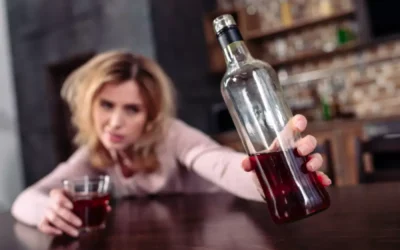Content
- Charitable Care & Financial Assistance
- One trait has huge impact on whether alcohol makes you aggressive
- Why Are Alcoholics So Mean to the Ones They Love?
- The Failure to Consider Future Consequences and Its Impact on Aggression
- Ways Alcohol Facilitates Anger, Aggression and Violence
- The Connection Between Alcohol and Anger
“Only a tiny fraction of all drinking events involve violence,” the researchers write in the June 21 issue of the journal Addiction. “And whether intoxicated aggression is likely to occur seems to depend on the drinkers’ propensity to withhold angry feelings when sober.” You see them at bars, sporting events, weddings — basically anywhere alcohol is served. After a few beers or cocktails, an alcoholic rage overtakes them and they come out swinging, screaming or both. Their targets are family members, friends, even complete strangers.
- “The participants were led to believe they were dealing with a real jerk who got more and more nasty as the experiment continued,” Bushman said.
- One study found that chronic alcohol use decreases the function in the prefrontal cortex, which plays a key role in impulse control.
- You may also have a pattern of using alcohol to cope with stressful situations, or as an excuse to expel pent-up anger.
As a result, you may be overly aggressive during a situation where you’d otherwise notice the cues that tell you to think more rationally. Typically, anger will lead to aggression unless something happens to resolve the situation. If an intoxicated person becomes upset because the bartender refuses to serve them, help from a friend might calm them down.
Charitable Care & Financial Assistance
For over 20 years Dr. Umhau was a senior clinical investigator at the National Institute on Alcohol Abuse and Alcoholism of the National Institutes of Health (NIH). The person will find subtle ways to review their anger which is seen as passive. This type of anger can be frustrating for others because there is no communication. Anger issues are sometimes triggered by external forces like financial problems, high-stress work environments, and marital problems. Intermittent explosive disorder can begin in childhood — after the age of 6 years — or during the teenage years.
No matter the reasons behind feeling anger when drinking alcohol, such behavior can be harmful. By consistently becoming angry or belligerent when you drink, alcoholism and anger you put yourself and others at risk. Therefore, seeking a solution for alcohol-related aggression is essential for your future health and safety.
One trait has huge impact on whether alcohol makes you aggressive
When he’s not busy treating The Freedom Center’s clientele, you might find Kevin engaged in his other passion as an actor/director in the local theater community. Kevin’s expertise and experience as a Primary Therapist, paired with his natural talents and abilities as a speaker and an artist, have uniquely equipped him to reach our population and render top-notch care. After the individual or couple has completed an addiction treatment program there are steps they can take to support sobriety going forward. Protecting recovery is essential when the objective is to avoid any future drunk rage blackout events.

Knowing yourself means knowing your limits when it comes to anger and alcohol. Remember, a person doesn’t have to be drunk to act out in anger or rage. Rage related to anger and alcohol runs down the list of wrongs, either refusing to forgive or denying forgiveness that’s already been offered in the past.
Why Are Alcoholics So Mean to the Ones They Love?
This is not to say that alcohol causes aggression, or serves to makes someone angry, in and of itself; however, it may be a contributing factor when it comes to difficulties controlling these emotions. In addition, alcohol abuse and addiction can result in poor anger management skills. Bunmi is a recent https://ecosoberhouse.com/ graduate of the University of Maryland, Baltimore County, where she earned her bachelor’s degree in Psychology with a concentration in Human Services. Bunmi is dedicated to helping her clients reach their full potential and build their toolkit of resources to support their long-term recovery.
A total of 100 males (50 alcohol-dependent and 50 abstainers) in the age range of 20–45 years with a primary diagnosis of alcohol dependence were taken for the study. These are clinically studied therapies that resulted in statistically significant results. Clients will engage in the therapy best suited to their own specific needs and underlying factors.
